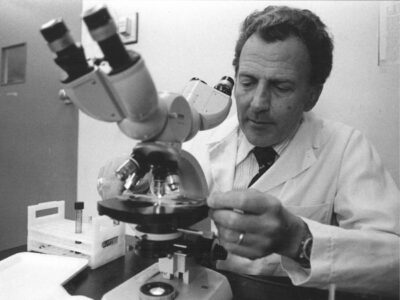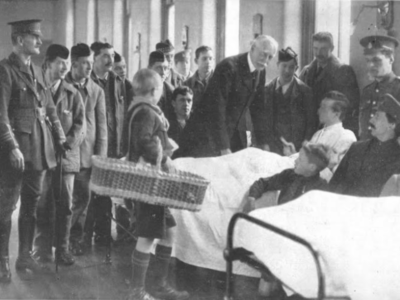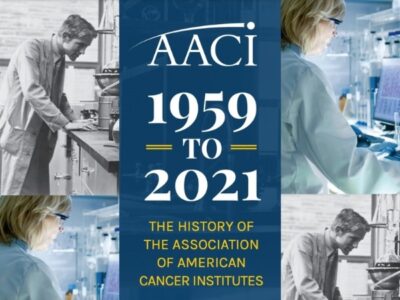Susan Love, breast oncologist, founder of the breast cancer advocacy movement, and chief visionary officer of the Dr. Susan Love Foundation for Breast Cancer Research, died July 2.
Radiation oncologist William Blackstock died from his long battle with prostate cancer June 18. He was 60.
NCI has contributed the 2017-2022 annual issues of Milestones, an annual magazine from NCI’s Center for Cancer Research, to the Cancer History Project.
Bill Nelson, director of Johns Hopkins Kimmel Cancer Center, is conducting a series of interviews commemorating the cancer center’s 50th anniversary.
Alan Blum, director of The Center for the Study of Tobacco and Society, documents advertisements from tobacco companies during “an era not very long ago when a son giving his dad a gift of a carton of cigarettes was as American as apple pie.”
In January 2021 Mary Humphrey made several phone calls to find an oncologist who would treat her husband, Marcus Humphrey, for a lump that had grown rapidly and exponentially on the right side of his neck.
After reading last week’s coverage of Fred Appelbaum’s “Living Medicine: Don Thomas, Marrow Transplantation, and the Cell Therapy Revolution,” Jerome Yates, emeritus professor of oncology at Roswell Park Comprehensive Cancer, wrote a letter to the editor addressing the contributions of another leader in the field of bone marrow transplantation—George Santos.
Frederick Appelbaum, executive vice president, professor in the Clinical Research Division, and Metcalfe Family/Frederick Appelbaum Endowed Chair in Cancer Research at Fred Hutchinson Cancer Center, is the author of “Living Medicine: Don Thomas, Marrow Transplantation, and the Cell Therapy Revolution.”
Alan Blum, director of The Center for the Study of Tobacco and Society, documents King Charles’s track record of anti-smoking advocacy, which represents a break with the royal family’s history with tobacco.
The following reflections on the Association of American Cancer Institutes from AACI are excerpted from “The History of the Association of American Cancer Institutes” by Donald L. Trump and Eric T. Rosenthal.















